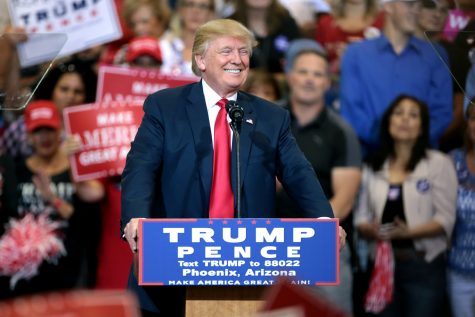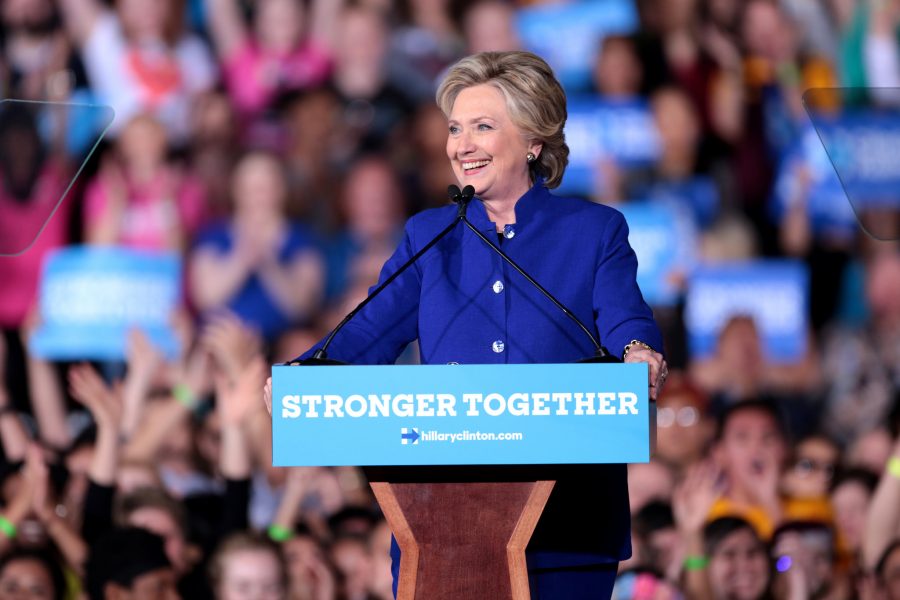How the presidential candidates plan on handling your college tuition
Candidates’ proposed plans for college tuition could make college cheaper for students
Hillary Clinton plans on making debt-free college available to everyone and aiding the millions of Americans who already have student debt.
(Editor’s Note: The original version of this story identified Hillary Clinton as the current Secretary of State; however, she no longer holds this position. The error has since been corrected.)
On Election Day, voters will have to make their choice of candidate based off a variety of different important issues. One of which that will perhaps most directly affect Pascack Valley students is the cost of college.
Republican nominee and businessman Donald Trump and Democratic candidate and former Secretary of State Hillary Clinton may not have a lot in common—their views differ on every issue from abortion to immigration—but they do share one opinion: college is too expensive.
The average Class of 2016 college graduate has $37,172 in student loan debt. This average is 6% higher than it was last year and almost twice as much as it was ten years ago. Unless the next president takes measures to successfully reduce the cost of a college education, it will most likely continue to grow.

Clinton’s plan would be fully paid for by closing tax loopholes and expenditures for high-income taxpayers.
Clinton has stated that the cost of a college education “should not be a barrier, and debt should not hold you back.” Trump has similarly expressed that college students are “choking on those loans” and “before they start, they’re in trouble.”
Graduating without substantial college debt would make it easier for Pascack Valley students to move out of their parents’ homes, start businesses, and pursue higher education in a specific fields of study. Both candidates have their own plan to make higher education more affordable and accessible, and the next president’s decisions regarding this issue will affect PV students who are going to college and preparing to graduate in the next four years.
Clinton believes that every student should be able to graduate from a public college or university without taking on any student debt. Under her proposed plan, in-state public higher education would be free for every student with a family income of $85,000 a year or less starting from the beginning of her presidency, and tuition-free for students with a family income up to $125,000 by 2021.
Her plan also states that all community colleges will offer free tuition. According to documents from Clinton’s campaign, “Clinton’s New College Compact plan … will be fully paid for by closing tax loopholes and expenditures” for high-income taxpayers. In order for this plan to be successful, states will have to invest in higher education, and colleges will be held accountable for their students’ academic success and for controlling tuition costs.
If we can make some baby steps to make college cheaper for me, and even cheaper for my children, that would be a good thing.
— PV junior Rebecca Fontana
“I don’t know if free college is realistic, but if we can make some baby steps in that direction to make college cheaper for me, and even cheaper for my children, that would be a good thing,” junior Rebecca Fontana said.
Clinton has stated that she wants to “make debt-free college available to everyone” and “liberate the millions of Americans who already have student debt.” She has said that “the jobs of the future are going to require more education, more skills, more training” and “as we go through our work lives, a lot of people will have to get those skills and education and knowledge refreshed and maybe even retrained.”

Republican nominee Donald Trump’s plan is to give universities tax breaks and make sure they are making an honest effort to reduce tuition.
On the other hand, Trump wants to ensure that the opportunity to attend a two or four-year college will be easier to access, pay for, and complete. He plans to work with Congress on reforms to reduce college costs in exchange for federal tax breaks. According to his plan, this can be accomplished by ensuring that universities are making an honest effort to reduce tuition costs and student debt.
Trump has not yet released a detailed plan, but he has said that universities with multibillion dollar endowments “use the money to pay their administrators, to put donors’ names on their buildings, or just store the money, keep it, and invest it.” Instead, these universities should use their money to focus on student tuition and housing because “that’s what it’s supposed to be for.”
“I don’t think Hillary’s plan will work…Trump’s plan, while it’s only affecting a small amount of people, it’s still affecting people,” junior Sarah Daniels said.
A recent article in the New York Times argues that Clinton’s plan may not be very effective because it is likely that some states would choose not to raise taxes or they could decide against spending more money on affordable higher education.
However, according to Inside Higher Ed, a very large majority of college students enroll at schools without sizable funding. In fact, only about 50 colleges and universities are in the category of “multibillion.”
Trump’s plan, while it’s only affecting a small amount of people, it’s still affecting people.
— PV junior Sarah Daniels
Of these universities, many are the most generous with student aid and, in some cases, low-income students do not have to borrow at all. For example, Yale, Harvard, and many other universities with the largest financial endowments have financial aid policies that ensure that 100% of every undergraduate’s demonstrated need is met with a package that does not include loans.
The results of a Washington Post/ABC News poll have found Clinton and Trump to be “the two most unpopular presidential candidates in decades”, which begs the question: Between Clinton and Trump, just how much does it matter who is elected? Is a four-year term enough time for the Clinton or Trump administration to make a lasting impact on our futures?
Regarding the cost of college and the student loan debt that PV students may have to deal with as they pursue a higher education, one term may just be enough for the next president to make a significant impact.














